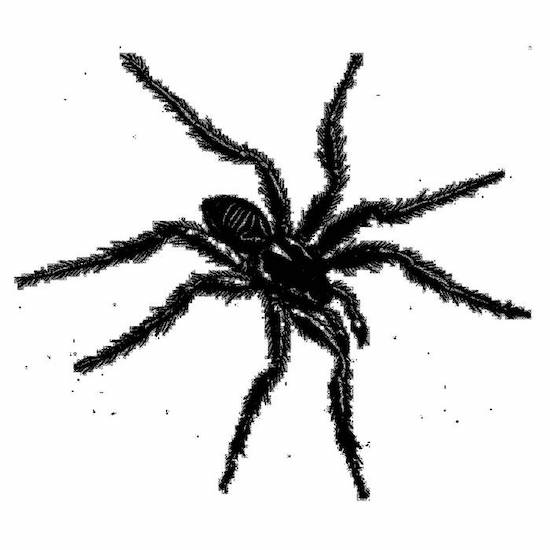I thought it was only football that could be described as a game of two halves. An exception should be made for reviewing a release like Tarantismo – Odyssey of An Italian Ritual, which reveals two listening experiences as different as chalk and cheese.
This gloriously odd record leads you to many discoveries, nonetheless. The opening tracks on the release (or those on side one if you have the vinyl version) are six recordings from the 1950s of an ancient folk music and dance ritual that was employed to cure Tarantismo; a psychological condition characterised by an extreme sometimes deadly impulse to dance. The condition was given its name due to the belief that it was caused by the bite of a tarantula. Tarantismo was found mainly in southern Italy – around the Greek colony of Taranta – during the mediaeval and the early modern periods. And, given the times, it seems the dance cure took the form of an exorcism. In more recent years this form of music based round creating long and fast rhythmic passages has developed and is used in therapy for patients with certain forms of depression and hysteria. The effects of the music on the endocrine system (your glands in other words) is now an object of serious research.
A word about the record’s makers, the French organisation FLEE, is probably needed at this point, if only to give further context to how this record came about. FLEE releases “projects around underrated music genres that … interact with contemporary electronic artist producers, visual artists and thinkers from around the globe.” If you’re seduced by the music, the label has brought out an accompanying book with nine original essays. This mix of making a wider, more contemporary point by reworking original material and adding other approaches from different disciplines is nothing new, of course. But what makes Tarantismo – Odyssey of An Italian Ritual so enjoyable is that the whole concept feels like a lecture using audible and written clues that you can begin to use elsewhere.
On to the music. Soaking up the original folk recordings should serve as a prelude and guide for the modern re-workings. It’s also an experience that is as close as you are likely to get to listening to the sort of thing that once drove Alan Lomax. These pieces, in some cases no more song snippets around a minute in length, are in the main informed by repetitive vocal lines or a lively fiddle. The sound of the dances themselves provides the main rhythm. They feel like they’re from another more magical, if unstable world.
The modern interpretations kick off with the mighty Bjørn Torske and Trym Søvdsnes’ reworking of one of the sound snippets, which starts like one of Ash Ra Tempel’s more kosmische moments before settling down to a groovy mid-tempo mulchabout with some pronounced psychedelic overtones. All of which is very reminiscent (unsurprisingly) of some of the things you’d hear on Norwegian label Smalltown Supersound. Following that UFFE’s reworking of another snippet is a tougher, punchier take that balances the original melody line against a metallic rhythm and some low register hums. It’s an effective piece in the way the original vocal is allowed to retain a distinctly ghostly quality. The ghostly essence is also heard in LNS’s track, which also has a strong MOR sheen to it (it’s probably the pan pipes, which sound more sinister than kitsch here).
The atmosphere invoked on the funny reworking by Bottin is, by contrast, a Euro disco, Sabrina style. Don’t DJ’s take is more "zen", employing sparse vocal samples against stripped down rhythms and the sound properties of those rhythms; akin to the sorts of plinks and plonks heard on a Kate NV release. KRMU’s beautiful end track draws on the fiddle’s enervating rhythms, balancing them against subtle electronic counterpoints to build a calming folktronica finale that seems to bring the record full circle, back to a time long gone.
Records like this one perform as gateways to the unexpected. Listening in and reading up can lead to the sort of afternoon’s research on the web that is at once extremely self-indulgent and also gloriously enlightening. Apparently there’s a whole scene based around the music style, Tarantella, which has had festivals devoted to it. It just goes to show, trusting to other people’s enthusiasms can lead to further, magical things that would otherwise have remained out of reach.


